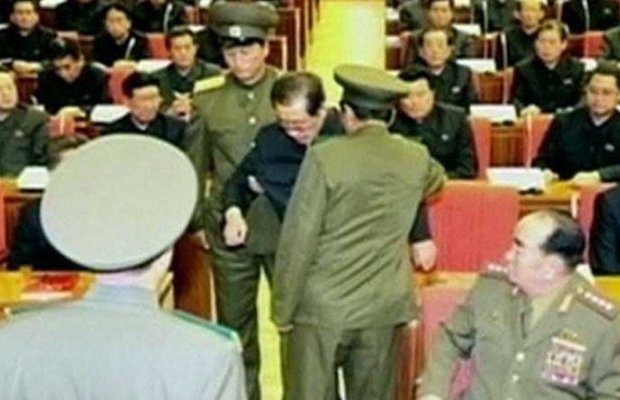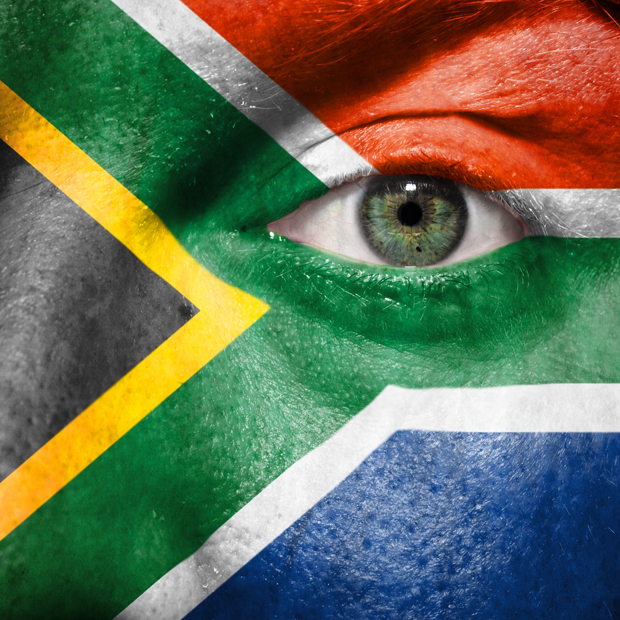16 Dec 2013 | Digital Freedom, Vietnam

(Photo: Shutterstock)
Vietnam has so far this year locked up more internet bloggers than in 2012. Vietnamese bloggers were therefore quick to react when, along with China, Russia, Saudi Arabia, Algeria and Cuba, the communist country was elected to the United Nations Human Rights Council (UNHRC) for 2014-2016 term by creating and launching a new instrument for free expression: the Network of Vietnamese Bloggers (NVB).
The network aims to ensure that the Vietnamese government implements its obligations and commitments to the UNHRC through actions rather than mere political statements. Stating that, as Vietnam’s membership to the UNHRC means that all of its 90 million citizens are now members of the Council, the NVB will strive to uphold core values in the promoting and protection of human rights.
In order to do this it believes that Vietnam should:
- Agree to the 7 UN requests not yet met by the Vietnamese government which would allow UN delegates to visit Vietnam to investigate alleged human rights violations,
- End torture, cruel, inhuman and degrading treatment and punishment of any and all Vietnamese citizens,
- Release those currently imprisoned solely for peacefully exercising their freedom of expression and other rights based on core and universal values of UN treaties,
- Repeal vaguely-worded laws and decrees which are arbitrarily interpreted,
- End the state monopoly on media and publishing, ensure that all individuals and organisations are entitled to establish media agencies and publishing house,
- Remove firewalls that bar users accessing social media networks.
Chi Dang, Director of Overseas Support for the Free Journalist Network in Vietnam, stated that it was crucial that the launch of the network had international support as this has “proven to provide effective protection for our bloggers on the ground”.
The launch of the network will coincide with the International Human Rights Day on December 10.
This article was published on 16 Dec 2013 at indexoncensorship.org
16 Dec 2013 | News and features
 North Korea has expanded its deletion of a few hundred online articles mentioning Jang Song Thaek, the executed uncle of Kim Jong Un, to all articles on state media up to October 2013, numbering in the tens of thousands.
North Korea has expanded its deletion of a few hundred online articles mentioning Jang Song Thaek, the executed uncle of Kim Jong Un, to all articles on state media up to October 2013, numbering in the tens of thousands.
“It’s definitely the largest ‘management’ of its online archive North Korea has engaged in since it went online. No question,” Frank Feinstein, North Korea news analyst, told this writer on Sunday (15 December).
The Korean Central News Agency (www.kcna.kp), the state’s main organ, started publishing in its current online form on 1 January, 2012, and had some 39,000 Korean-language articles by mid-December 2013, with many translated into other languages. “Now however there are now no articles in the archive from prior to October 2013, with everything numbered to around 35,000 – or to October this year – gone,” said Feinstein, director of KCNA Watch, which analyses North Korean media for keywords and converts that into visual data to gauge reporting trends. Similar proportions of deletions were true for Korean Workers’ Party paper Rodong Sinmun and www.uriminzokkiri.com.
Just four days passed from the arrest Kim Jong Un’s uncle Jang, which was televised across North Korea, to his execution on 12 December 12. Thereafter the expurgation of any mention of Jang from the state news files took just hours. Following outages that to seemed affect several state online news sources, of some 550 Jang-related Korean articles on www.kcna.kp, Feinstein estimated that by late Friday, “every single one has either been altered, or deleted, without exception”. This included the most anodyne reports such as a 5 October KCNA story about Kim Jong Un visiting a hospital under construction now reads: “He personally named it ‘Okryu Children’s Hospital’ as it is situated in the area of Munsu where the clean water of the River Taedong flows.” But the original had continued: “He was accompanied by Jang Song Thaek, member of the Political Bureau of the CC, the WPK and vice-chairman of the NDC, and Pak Chun Hong, Ma Won Chun and Ho Hwan Chol, vice department directors of the CC, the WPK.”
Other examples are at the KCNA Watch site, and as also observed by North Korea watcher, Martyn Williams at www.northkoreatech.org.
What’s new about the North’s retrospective media management is its scale and that it’s doing it online, before a global audience. “This is North Korea censoring itself to the world – not just to its own citizens…Personally, I can’t believe they could think they’d get away with this sort of revisionism,” said Feinstein.
Nonetheless, the North can sustain its digital Ministry of Truth antics on the World Wide Web by preventing its output from being indexed. ‘It already works on KCNA – Google can’t index it at all. You can’t even link to an article on KCNA,’ said Feinstein, pointing to Google’s entire, paltry record of KCNA’s office in Pyongyang via this link.
It’s not clear even if South Korean intelligence or news agency Yonhap can archive KCNA’s database in its live form. “While North Korea doesn’t understand much about how to successfully operate online, they do understand this much.”
One theory contends that the North publishes different propaganda for internal and external consumption. For sure, North Korean people can only access news produced by the North Korean state, accessing www.kcna.kp through the country’s intranet, but more likely from the state TV, radio or newspapers on station platform hoardings of which obviously none enable access to digital or visual archives. TV has also been noted as adjusted, with a documentary first shown on 7 October 2013 being reshown on 7 December with Jang cut out of shots by adjusted focus and framing.
The upshot is this: “Our party, state, army and people do not know anyone except Kim Il Sung, Kim Jong Il and Kim Jong Un,” according to the sole English-language article left on KCNA that mentions Jang, a vicious 2,750-word denouncement from 13 December 13. The piece calls Jang “impudent, arrogant, reckless, rude and crafty,” “despicable human scum … worse than a dog,” who, backed by “ex convicts”, had plotted to destroy the economy before “rescuing” the country by military coup and billions earned from hoarded precious metals.
“They are serious about removing him from history,’ said Feinstein, except for passages such as “the era and history will eternally record and never forget the shuddering crimes committed by Jang Song Thaek, the enemy of the party, revolution and people and heinous traitor to the nation,” which concludes the KCNA piece. Meanwhile, “Rodong Simnun no longer knows Jang as anything other than a traitor,” tweeted Korea historian and linguist, Remco Breuker.
Traffic to www.kcna.kp has never been higher, even than for the death of Kim Jong Il, as people now follow stories to the source and are captivated by the apparent novelty of North Korea having an online presence, and one that uses such bizarre language. “Once they find KCNA, there’s no going back.” KCNA’s legitimacy as an analytical source for the North Korean state’s views is oft obscured by its saltier reportage.
Outside news sources are also sensationalist. While most Pyongyang watchers agree Jang was shot dead, Taiwanese news reported he’d been eaten by 120 dogs in front of Kim Jong Un and 300 government ministers in an hour-long death. Feinstein also pointed to a globally syndicated article before Jang’s trial that precipitously claimed www.kcna.kp had cleared out all Jang articles, when in fact articles mentioning Jang were still up. Basically, KCNA “has a bad search function”, said Feinstein.
While the case provides a tantalising view of what the Soviets might have done in the Internet age, it has also pushed out of the headlines another North Korea story, the release of American tourist Merrill Newman who had been held in North Korea since October on charges of “espionage” relating to his military service in Korea during the 1950-1953 war. Newman, who had gone to North Korea as a tourist, said he had not understood quite how far the North Korean state does not consider the war to be over – something arguably partly attributable to the US media barely ever mentioning the conflict, despite the country still being not at peace with North Korea.
Ironically, KCNA Watch has been blocked in South Korea since 25 October. Visitors to the site hit a Korea Communications Standards Commission (KSCS) blocking screen that says “connection to this website you tried to access is blocked as it provides illegal/hazardous information,” under the 1948 National Security Act, which restricts anti-state acts or material that endanger national security, including all printed and online matter from Pyongyang. Civilians seeking to analyse KCNA material in South Korea need official clearance, with the data viewed under armed guard and deleted immediately afterwards, said Feinstein. The block extends to foreign embassies in Seoul and is under increasing criticism as a blanket weapon for stifling dissent. In August the UN special rapporteur on human rights Margaret Sekaggya called it “seriously problematic for the exercise of freedom of expression”.
Sybil Jones
16 Dec 2013 | Africa, News and features, Politics and Society, South Africa

(Photo illustration: Shutterstock)
Even as South Africans commemorate their global icon Nelson Mandela’s life-long struggle for human rights, shock waves have hit the media after the sudden dismissal of well-respected Cape Times editor Alide Dasnois. This follows a front-page lead article on 6 December on a report on corruption in which the new owners of the paper are implicated.
The Cape Times is part of the Independent Media stable which includes 18 daily and weekend titles. Sekunjalo Holdings, a company perceived to have close ties with the ruling African National Congress, bought it in the middle of 2013 from the Irish-based Independent News and Media (INM).
The corruption report, by the country’s statutory Office of the Public Protector, found that the fisheries department’s award of an R800 million (GBP £47 million) tender for the provision of marine patrol vehicles to a Sekunjalo subsidiary was biased, improper and amounted to maladministration.
Social media have been abuzz with criticism against the removal of Sorbonne-educated Dasnois. She is known as an ink-in-the-veins journalist who is dedicated to fair and accurate news coverage with integrity. In response to the outcry, Sekunjalo executive chairperson Dr Iqbal Survé claimed in a public statement on 9 December that Dasnois was “not fired” but offered other positions. He also suggested that the decision to “move” Dasnois was in response to the “wholly unsatisfactory sales performance of that title over the last few years”. In regard to this claim, it is worth noting that declining circulation besets the whole of South Africa’s newspaper industry and is not limited to the Cape Times.
Survé added that “a concerted public campaign of lies and distortions” is responsible for “some stat(ing)… as fact – without a shred of proof offered in evidence – that Alide Dasnois’s replacement was the result of the story published as the lead in the paper last Friday (6 December), regarding adverse findings by the Public Protector against a government minister in the award of a tender to one of the companies in the Sekunjalo Group… I and Independent deny this version of events categorically.”
However, contradicting this claim, Sekunjalo’s lawyers had sent a letter dated 7 Dec to the Cape Times demanding a prominently published apology from Dasnois and reporter Melanie Gosling who wrote the article on the Public Protector findings. Sekunjalo threatened to sue them for damages. His lawyers wrote:
“Our instructions are that you have reported extensively over the past two years on the allegations by the disappointed bidder SMIT Amandla [Marine] and Mr Pieter van Dalen of the Democratic Alliance regarding Sekunjalo’s role in the award of the tender for management of the research and patrol vessels of the department of agriculture, forestry and fisheries [DAFF].
Our client has instructed us to record the following:
1. It has been alleged that Sekunjalo Investments Ltd is guilty of corruption; that it had misled and/or defrauded DAFF; that it lacked the experience and expertise to undertake the management of the research and patrol vessels of DAFF; etc.
2. These allegations have been thoroughly debunked.
3. The report by the public protector clears Sekunjalo of all wrongdoing.
4. It would have been appropriate, after months and months of sustained attacks on the integrity of Sekunjalo, if the Cape Times had published on its front page the more accurate articles which were buried on page 18 of (Cape Times) Business Report of December 6 2013, that Sekunjalo had been vindicated, and that the company demanded an apology.”
The lead-up to this moment can be traced further back than the offensive front-page article. On 5 December, in anticipation of the release of the Public Protector’s findings, an article by Survé occupied the main space on the op-ed page in the Cape Times. He wrote about a “dirty tricks campaign” against himself and Sekunjalo – specifically an article published in the Sunday Times on 1 December containing leaked findings of the then still-to-be-launched Public Protector report on Sekunjalo and the fisheries deal. Survé accused the Sunday Times, owned by the Times Media Group, of collaborating with the opposition political party the Democratic Alliance.
It was not the first time that Sekunjalo’s newly acquired newspapers have been used as platform to defend the company against adverse reporting from competitors. The Mail and Guardian in August published Survé’s response to questions about the ownership structure of Independent Media after the acquisition. In an apparent retaliation, a front page article in the newspapers’ daily insert Business Report accused the Mail and Guardian of sour grapes after Survé rejected its offer to purchase some of the Independent Media titles. It mentioned that Survé had accused the Mail and Guardian of being funded by the CIA.
The Cape Times letters page on 6 December featured three letters from readers expressing concern about Survé’s abuse of his position to print an attack on the Sunday Times for exposing irregularities that his company is implicated in. On the same day the editorial acknowledged concerns by readers about whether the publication of Survé’s article heralds a change in the newspaper’s policy of editorial independence. It assured readers that the Cape Times will continue to publish all views, including from those criticised by Survé.
It ended with the assurance that “we believe readers have nothing to fear”, and quoted the concluding paragraph in Survé’s article: the Independent Newspapers should “remain what it has always been, a place where all worldviews, ideas and political schools are welcome”. Dasnois was fired on the same day.
Sekunjalo’s demanded apology in the 9 December edition did not transpire, suggesting that Dasnois had refused to apologise, leading to her removal. She has meanwhile indicated that she is investigating her legal options, while Cape Times staff and the SA National Editors Forum have demanded answers. A petition is circulating for her reinstatement. The Cape Times omitted any mention of Dasnois’s dismissal on 9 December – only that Sekunjalo would lay a complaint with the press ombud with regards the lead article. On 10 December the paper published Sekunjalo’s reason for removing Dasnois as “falling circulation”, with no response from her.
On 12 December presented the “real reason” why Dasnois was removed. In a public letter to staff he claimed she had refused to run with the death of Mandela as the lead in the paper on Dec 6, even though this was agreed at a meeting between editors and management (which, if it is the case, would be tantamount to interference in editorial decisions). However, his claim that Dasnois as experienced journalist would miss the news story of the year makes little sense. Indeed, the Cape Times featured a four-page wraparound with Mandela on the front cover on 6 December. The paper’s op-ed editor, Tony Weaver, devoted his weekly column on 13 December to the process of producing the Mandela edition of the paper on Dec 6, refuting Survé’s allegations.
The new owners have moved swiftly to replace Dasnois, with Gasant Abarder taking her place. He has yet again assured readers of the independence of the paper.
15 Dec 2013 | Magazine, Volume 42.04 Winter 2013
[vc_row][vc_column width=”1/2″][vc_single_image image=”90659″ img_size=”full” onclick=”custom_link” link=”https://shop.exacteditions.com/gb/index-on-censorship”][/vc_column][vc_column width=”1/2″][vc_column_text]
Subscribe to Index on Censorship magazine on your Apple, Android or desktop device for just £17.99 a year. You’ll get access to the latest thought-provoking and award-winning issues of the magazine PLUS ten years of archived issues, including Mission creep.
Subscribe now.
[/vc_column_text][/vc_column][/vc_row]


 North Korea has expanded its deletion of a few hundred online articles mentioning Jang Song Thaek, the executed uncle of Kim Jong Un, to all articles on state media up to October 2013, numbering in the tens of thousands.
North Korea has expanded its deletion of a few hundred online articles mentioning Jang Song Thaek, the executed uncle of Kim Jong Un, to all articles on state media up to October 2013, numbering in the tens of thousands.